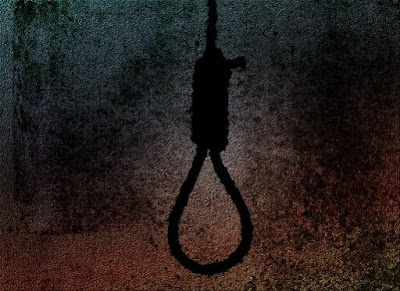Law Minister Datuk Liew Vui Keong announced the Cabinet's decision in Parliament earlier today, 13 November.
"Following the cabinet's decision, a cabinet memorandum has been circulated to the relevant ministries for their comments and to get public feedback on it," Liew was quoted as saying by Bernama in response to Bandar Kuching Member of Parliament (MP) Dr. Kelvin Yii.
Yii had asked for clarification on the government's position to abolish the death penalty, and whether there would be exceptions for extremely cruel crimes.
The 32 offences that were decided upon include murder
According to Bernama, the offences are under:
- Penal Code,
- Firearms (Heavier Penalties) Act 1971,
- Firearms Act 1960,
- Kidnapping Act 1961,
- Armed Forces Act 1972,
- Water Services Industries Act 2006,
- Strategic Trade Act 2010, and
- Dangerous Drugs Act 1952.
Previously, the Law Minister reiterated Putrajaya's view that death penalty for all crimes
will be abolished.
"Our view is that executions should not be carried out, we will inform the Pardons Board to look into the various applications for all the death row inmates to either commute or release them," Liew said last month, according to
Malay Mail.
"When commuted, they would have to face life imprisonment," he added.
Source: says.com, Jia Vern Tham, November 13, 2018
Malaysia's Cabinet decides to end death penalty for 33 offences
KUALA LUMPUR (BERNAMA) - Malaysia's Cabinet has reached a consensus that the death penalty for 33 offences as provided for under eight Acts of law should be abolished, including Section 302 of the Penal Code, which pertains to murder, Minister in the Prime Minister's Department Liew Vui Keong said on Tuesday (Nov 13).
He said the decision, which was reached collectively, also encompassed the Firearms (Heavier Penalties) Act, 1971; Firearms Act, 1960; Kidnapping Act, 1961; and Armed Forces Act, 1972.
Death penalties also provided for under the Water Services Industries Act, 2006; Strategic Trade Act, 2010; and Dangerous Drugs Act, 1952, are also to be abolished.
"Following the Cabinet decision, a Cabinet memorandum has been circulated to the relevant ministries for their comments and to get public feedback on it," Datuk Liew said during a question-and-answer session in the Dewan Rakyat.
He was replying to a question from Dr Kelvin Yii Lee Wuen, the Pakatan Harapan MP from Bandar Kuching, who wanted to know the government's position on abolishing the death penalty, in particular with respect to whether there will be exceptions for extremely cruel crimes,
Mr Liew also told the House that the Bill on the Independent Police Complaints and Misconduct Commission (IPCMC) was expected to be tabled at the next sitting of Parliament after all issues and policies were finalised.
He said follow-up meetings on the setting up of the commission had agreed that it should be truly independent, effective and have the power to tackle problems involving the police force.
"The framework takes into consideration powers that are more holistic and in line with existing laws and are currently in force," he said in reply to a question from Ms Maria Chin Abdullah, the Pakatan Harapan MP representing Petaling Jaya.
Mr Liew said the police's rights would also be assured as enshrined in Article 10 of the Federal Constitution.
In September 2018, the government announced the setting up of the IPCMC to replace the Enforcement Agency Integrity Commission.
Source:
straitstimes.com, November 13, 2018
⚑ | Report an error, an omission, a typo; suggest a story or a new angle to an existing story; submit a piece, a comment; recommend a resource; contact the webmaster, contact us:
deathpenaltynews@gmail.com.
Opposed to Capital Punishment? Help us keep this blog up and running! DONATE!
"One is absolutely sickened, not by the crimes that the wicked have committed,
but by the punishments that the good have inflicted." -- Oscar Wilde












